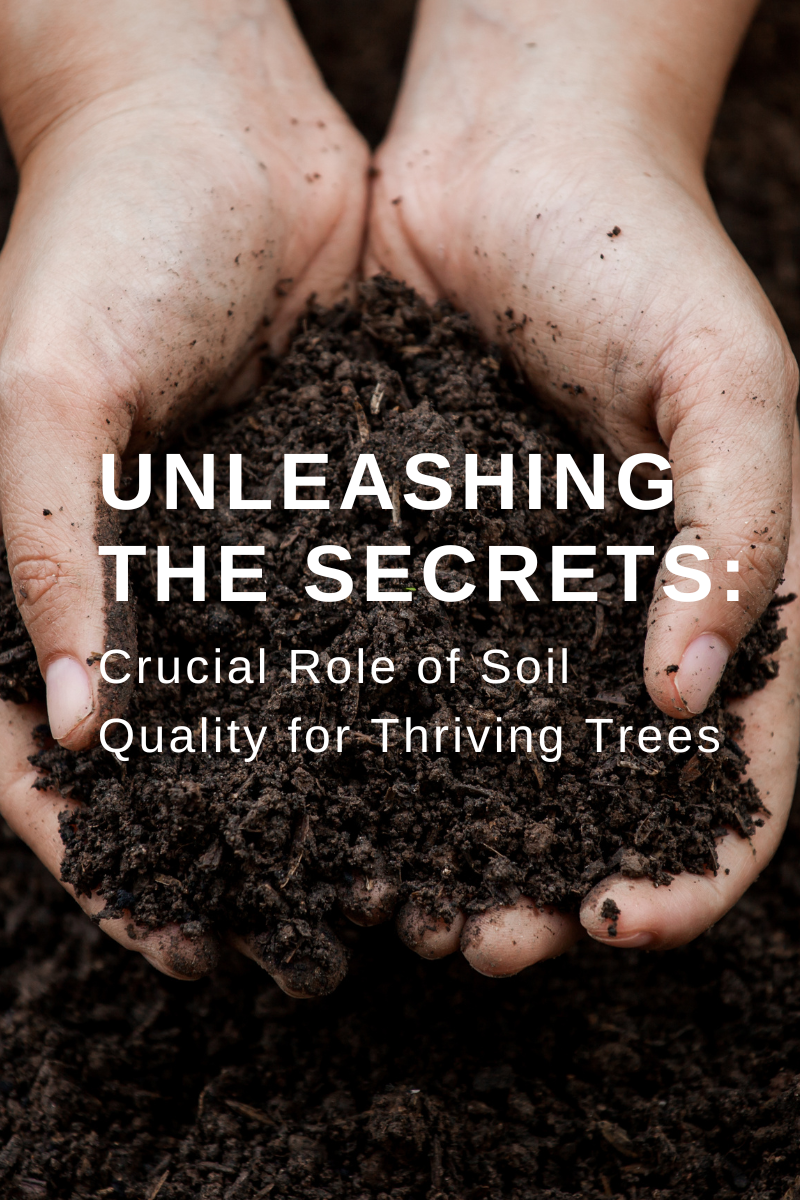
Unleashing the Secrets: The Crucial Role of Soil Quality for Thriving Trees
Trees, with their majestic presence and vital role in our environment, are often seen as symbols of strength and resilience. Yet, behind their beauty lies a crucial factor that determines their well-being and growth: soil quality. In this article, we will delve into the significance of soil quality for trees and explore the key aspects that contribute to their health and longevity. Whether you’re a passionate gardener, an arborist, or simply an admirer of nature, understanding the importance of soil quality will empower you to nurture and support the trees around you.
I. Why is Soil Quality Important for Trees?
Healthy soil provides the foundation for trees to flourish. It serves as a reservoir for essential nutrients, water, and oxygen, while also acting as a medium for root growth and stability. Here are some key reasons why soil quality is crucial for trees:
- Nutrient Availability:
Soil acts as a source of nutrients for trees. Elements such as nitrogen, phosphorus, and potassium, along with trace minerals, are essential for their growth, development, and overall vitality. High-quality soil ensures an adequate supply of these nutrients, promoting robust foliage, flowering, and fruit production. - Water Retention and Drainage:
Proper water management is vital for tree health. Soil with good water-holding capacity helps retain moisture, preventing drought stress and dehydration. Additionally, efficient drainage prevents waterlogging, which can lead to root rot and other detrimental conditions. Well-drained soil allows roots to access oxygen, enabling optimal growth. - Root Development:
The root system of a tree plays a crucial role in anchoring it securely and absorbing nutrients and water from the soil. Healthy soil provides an optimal environment for root expansion and development, ensuring strong anchorage and efficient nutrient uptake.
II. Factors Affecting Quality:
Several factors influence soil quality and its suitability for tree growth. Understanding these factors can help you make informed decisions to enhance the health of your trees. Here are some key considerations:
- Soil Texture:
Soil texture refers to the relative proportions of sand, silt, and clay particles. Sandy soil drains quickly but may struggle to retain water and nutrients. Clayey soil, on the other hand, retains moisture but can become compacted. Loamy soil, with a balanced mixture of sand, silt, and clay, offers ideal conditions for most trees, providing good drainage and water retention. - pH Levels:
Soil pH affects nutrient availability to trees. Most trees prefer slightly acidic to neutral soil, with a pH range of 6.0 to 7.5. Extreme pH levels can hinder nutrient uptake and affect overall tree health. Conducting a soil pH test can help you determine whether your soil requires amendments to create an optimal growing environment. - Organic Matter:
The presence of organic matter in soil enhances its fertility and structure. Organic matter, such as compost, improves soil texture, promotes beneficial microbial activity, and increases nutrient availability. Adding organic amendments regularly can enrich the soil and create a favorable environment for tree growth.
III. Strategies for Improving Quality:
Enhancing soil quality is a continuous process that requires time and effort. Consider implementing the following strategies to optimize the soil conditions for your trees:
- Mulching:
Applying a layer of organic mulch around the base of trees helps retain moisture, regulate soil temperature, and suppress weed growth. Mulch also slowly decomposes, adding organic matter to the soil and improving its structure over time. - Proper Irrigation:
Understanding the water requirements of your trees and providing appropriate irrigation is crucial. Deep, infrequent watering encourages root growth and prevents shallow root development. Using drip irrigation or soaker hoses ensures efficient water delivery, minimizing wastage. - Soil Amendments:
Based on soil test results, consider adding organic amendments, such as compost or well-rotted manure, to improve soil fertility and structure. Additionally, amendments like gypsum can help improve drainage in compacted clay soil. - Avoid Soil Compaction:
Excessive foot traffic or heavy machinery can compact the soil, limiting root growth and water infiltration. Minimize soil compaction around trees by designating paths or using protective barriers to preserve the soil structure. - Regular Soil Testing:
Periodic soil testing helps monitor nutrient levels, pH, and other essential parameters. This information enables you to make informed decisions regarding fertilizer application and soil amendments, ensuring that your trees receive the necessary nutrients for optimal growth.
Soil quality is a vital aspect of tree care that should not be overlooked. By recognizing the importance of soil and implementing strategies to improve its quality, you can provide your trees with the best possible growing conditions. Remember, healthy soil leads to healthy trees, and healthy trees contribute to a greener and more sustainable world.
At Plano Tree Care, we are passionate about promoting healthy tree growth and providing expert guidance on soil quality and tree care. If you need assistance with improving your soil conditions or have any questions about tree health and maintenance, contact us today. Our team of experienced arborists is ready to help you create an ideal environment for your trees to thrive. Together, let’s contribute to a greener and more sustainable world, one tree at a time.
